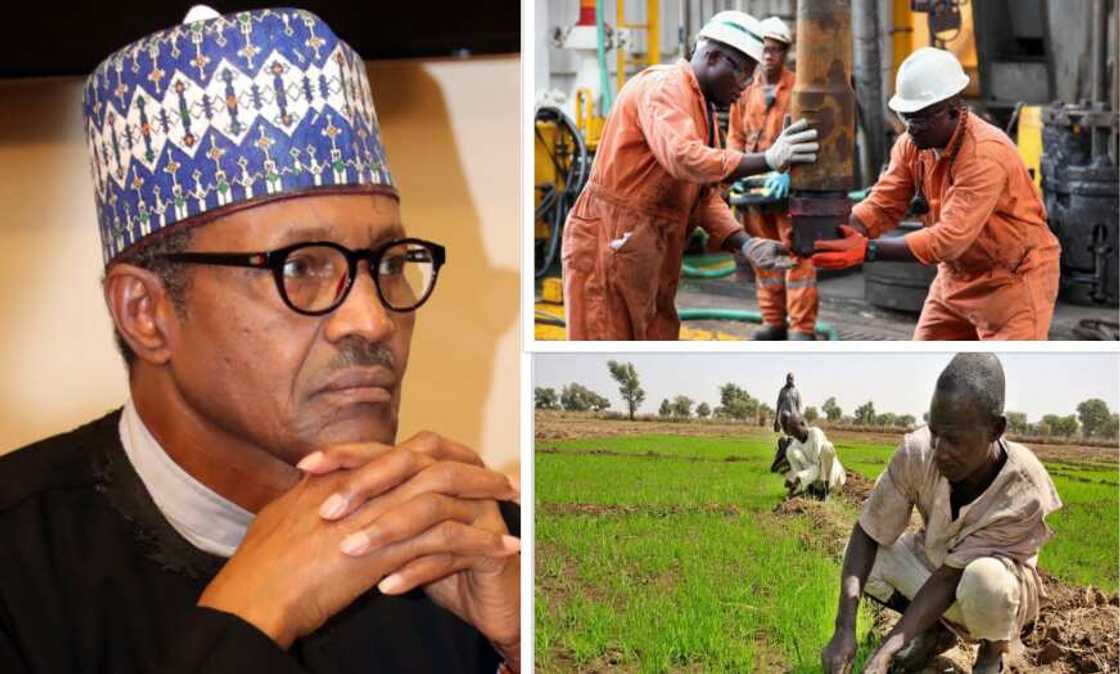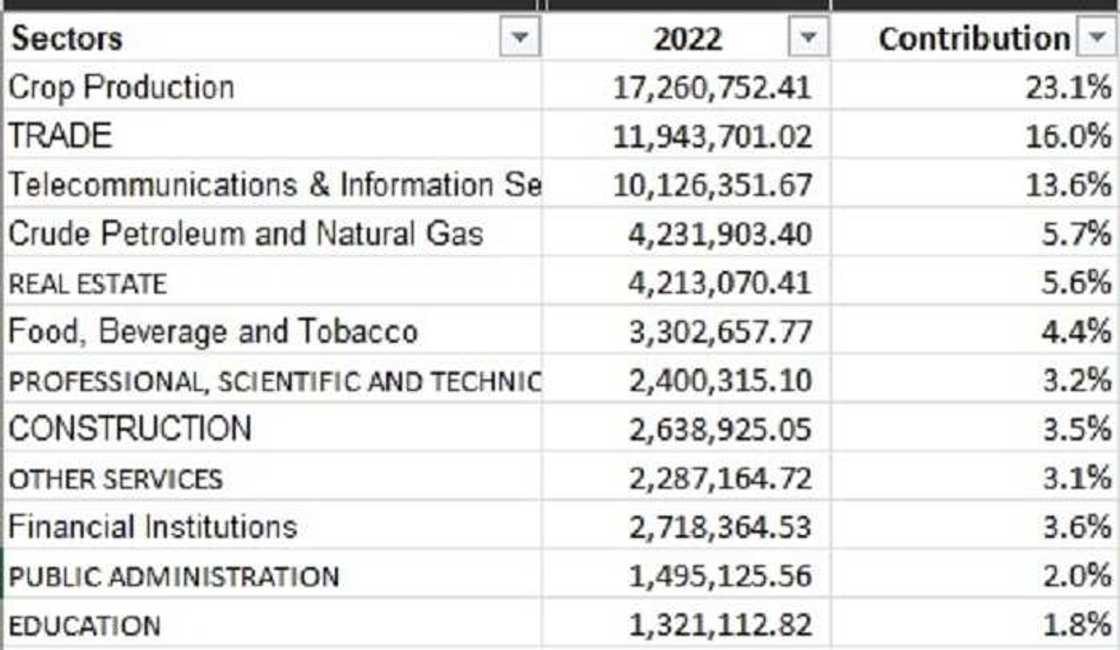Top 5 Sectors Contribute Over N47 Trillion to Nigeria's Economy
- Crop production, trade and Oil and gas remain the top earners for Nigeria's economy in recent times
- The Nigerian government has tried to diversify the Nigerian economy from oil which has been the mainstay for decades
- Today, the diversification policy seems to work as some sectors are beginning to overtake oil as the nation's top earner
PAY ATTENTION: Click “See First” under the “Following” tab to see Legit.ng News on your Facebook News Feed!
Nigeria's economy has been steadily growing, especially in the last couple of years, following multiple direct and indirect federal government and private sector interventions.
Nigeria is one of Africa's largest economies, and it has had its fair share of challenges that threaten its economic stability and growth. However, the current government has often emphasised the diversification of the Nigerian economy from oil which has been the mainstay.

Source: UGC
Recently, the government's efforts have begun to manifest in policy and implementation, as is evident in some sectors today, contributing more than oil to Nigeria's Gross Domestic Product (GDP).
Legit.ng, in this article, highlights from data provided by the National Bureau of Statistics the main drivers of Nigeria's economy with emphasis on how much revenue each contributed to the GDP.
PAY ATTENTION: Join Legit.ng Telegram channel! Never miss important updates!
Crop production

Source: UGC
Crop production remains the top employer of labour, with about 35% of total national employment in Nigeria in 2020. As a key activity for Nigeria's economy, crop production has continued to grow, contributing the most to Nigeria's economy in terms of revenue. It makes up about 23% of the contribution to Nigeria's GDP, an estimated value of N17.3 trillion.
Primary reasons for the sector's transformation are the commercialisation at the small, medium, and large-scale enterprise levels and of course, the many interventions of the Central Bank of Nigeria in the last few years. Major crops grown in Nigeria include maise, cassava, rice, guinea corn, yam and beans.
Trade

Source: UGC
In the last few years, trading activities in Nigeria have grown tremendously, making up 16% of the country's economy to N11.9 trillion in 2022.
Apart from the activities of Nigeria's major exporters, the signing of the African Continental Free Trade Agreement (AfCFTA) in 2019, with its available opportunities, has been a significant boost for Nigeria's trade. Nigeria's biggest trading partners include India, Spain, France, Netherlands, Canada and the US.
Information and Telecommunication

Source: UGC
The Information and Telecommunication sector is one of the biggest sectors in Nigeria's economy. It contributed as much as N10 trillion, making up for about 13.6%, to Nigeria's economy in 2022. The sector includes some of the biggest companies in the country which that span across telecommunication, broadcasting, motion pictures and publishing.
Despite the challenges in the sector, which include regulatory bottlenecks, immigration of skilled ICT professionals and most importantly, shortage of electricity, ICT has continued to play an important role in Nigeria's economic development.
Crude oil and natural gas

Source: UGC
Even though the government has put in many interventions to promote non-oil sector to become a main focus, the contributions of the oil sector to Nigeria's revenue can not be overlooked. The sector made up for about 5.7%, contributing about N4.2 trillion to Nigeria's economy in 2022.
Challenges such as crude oil thefts, illegal bunkering and pipeline vandalism, have prevented Nigeria from benefiting from a global oil boom and as a result, affecting the accretion of the country’s foreign reserves.
Real Estate

Source: UGC
The real estate sector continues to sustain growth in Nigeria since the end of the global Covid-19 pandemic which forced it to slow down across the world. The real estate sector contributed N4.2 trillion to Nigeria's economy (5.6%) in 2022. The real estate industry in Nigeria at this time continues to be a prime investment option, regardless of a recorded housing deficit.

Source: UGC
GDP Growth: Best-performing Sub-sectors in Nigeria in Q2 2022
The National Bureau of Statistics (NBS) said that Nigeria’s economy grew by 3.54% in absolute terms in the second quarter of 2022, a decline of 1.47% increase in comparison to 3.11% in the second quarter of 2011.
According to Legit.ng, the NBS stated that the growth dipped from 5.01% in the second quarter of 2021, when fast growth was recorded as COVID-19 ravaged the economy in the second quarter of 2020.
Best-performing sectors include road transport, coal mining, air transport, Quarrying and other minerals.
Source: Legit.ng






